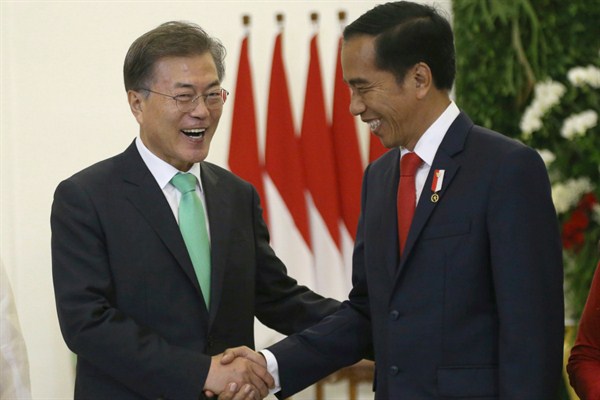On Nov. 9, South Korean President Moon Jae-in unveiled his “New Southern Policy,” aimed at deepening relations with the countries of the Association of Southeast Asian Nations, or ASEAN. Moon’s announcement, made on a state visit to Indonesia, came amid a flurry of diplomatic activity in the region ahead of the latest ASEAN summit in the Philippines and U.S. President Donald Trump’s trip to Asia. In an email interview, Scott Snyder, a senior fellow for Korea studies and director of the program on U.S.-Korea policy at the Council on Foreign Relations and author of the forthcoming book South Korea at the Crossroads, discusses what’s behind the New Southern Policy and what it means for South Korea’s allies and neighbors.
WPR: What is driving Moon’s latest initiative in Southeast Asia, and what is the current status of South Korea’s relations with the region?
Scott Snyder: President Moon declared that his objective was to raise relations with Southeast Asia to an equivalent level of South Korea’s relations with what it refers to as the four major powers surrounding the peninsula: the United States, China, Japan and Russia. Moon’s policy was foreshadowed by his decision to send the mayor of Seoul, Park Won-soon, as his special envoy to ASEAN following his May election as president. This was the first time that South Korea had sent a special envoy to Southeast Asia following the election of a new president.

